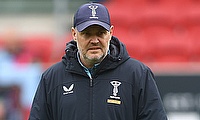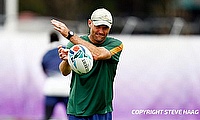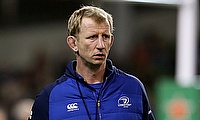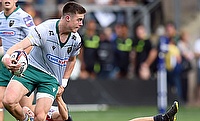Champions Cup academy competition

The Champions Cup Academy competition, showcasing clubs' emerging talent
©TRU
Following the northern hemisphere’s fairly disastrous Rugby World Cup campaign, there has been a heavy focus on youth rugby in Europe and whether or not players are being trusted early enough.
South Africa made it all the way to the 3rd/4th playoff game with 2014 Junior World Championship runners-up Handré Pollard and Jesse Kriel in their first XV, while their opponents, Argentina, had an extremely successful tournament with a number of players in their very early 20’s.
Finalists New Zealand and Australia had stronger, more experienced squads which precluded a number of their young stars featuring, but when you see talents like Akira Ioane and Otere Black excelling in Super Rugby, both of whom were just 19 years old when they started making regular appearances, it’s no surprise these nations are perennially in a better position than their European rivals.
In fairness, England have done a reasonable job of transitioning their recent age-grade stars to international rugby. Anthony Watson and Jack Nowell are regulars in the senior squad, while Luke Cowan-Dickie and Henry Slade have both now also made their international bows. That said, the likes of Maro Itoje, Sam Hill and Jack Clifford still sit uncapped and England have come in for heavy criticism for ignoring them in the build-up to the RWC.
Wales have also had relative success integrating recent age-grade prospects, albeit more as a result of injuries opening up opportunities for them, rather than a trust in their abilities. It is however certainly an issue in Irish, Scottish and French rugby.
With European qualification the prize in domestic seasons across the northern hemisphere, not to mention the dangers of relegation in England and France, European clubs are always going to be more cautious in their approach to blooding youngsters. One possible way of convincing them that they are ready for the pressures of senior rugby would be an academy version of the Champions Cup.
An academy Champions Cup, featuring the development sides of the clubs involved in European rugby’s most prestigious club tournament, could run concurrently with the senior tournament. Revenues in European rugby continue to rise and could support an academy tournament without too much difficulty.
Games could be played before or after their senior counterparts at the same stadium, giving paying fans even more value for money. The Aviva Premiership’s academy league has been a great success over recent years and has significantly contributed to the success of the England U18 and U20 sides and by pitting the emerging talent of the best sides in Europe against each other, it’s a tournament which could potentially help the rest of Europe begin to close the gap on the southern hemisphere, at least at age-grade level.
With the exception of the weekly Friday night game, all Champions Cup games are played on the weekend, meaning that academy games should not interfere with the academic obligations of those involved. It would represent these youngsters with a chance to not only impress their watching coaches, but also deal with the pressures of a large, expectant crowd.
The skills of the young emerging talent across the northern hemisphere are not in question, but their ability to utilise those skills correctly in high-pressure environments is. Young players in New Zealand do not find their creativity stifled by pressure and it’s a situation which the northern hemisphere needs to try and replicate for their own emerging players.
As mentioned before, England and Wales have had success at U20 level recently and that could well show out at senior level over the next decade, but that doesn’t mean they should be resting on their laurels.
With just 10 top tier regions, provinces and/or clubs between Wales, Ireland and Scotland, the opportunities for younger players are limited, especially with marquee foreign signings and project players also featuring heavily. The introduction of a tournament such as this would help bridge the gap between age-grade and senior rugby for those coming through the development pathways and give them a stage to showcase their ability.
The sooner these nations are able to be regularly competitive with the likes of New Zealand and South Africa at age-grade level, the sooner they will be able to do likewise at senior level.
It might not draw a big television deal, but European rugby has the commercial side of the sport nailed, now it needs to work on ensuring the product – if we must call it that – is as good as it can be. These young players will ultimately become the backbone of the Champions Cup in the future and there is little reason not to start preparing them for that now.









